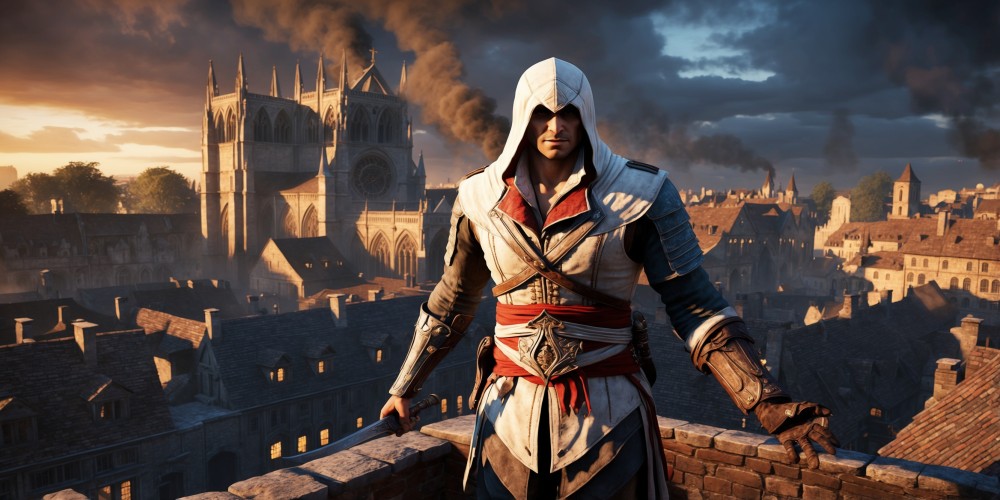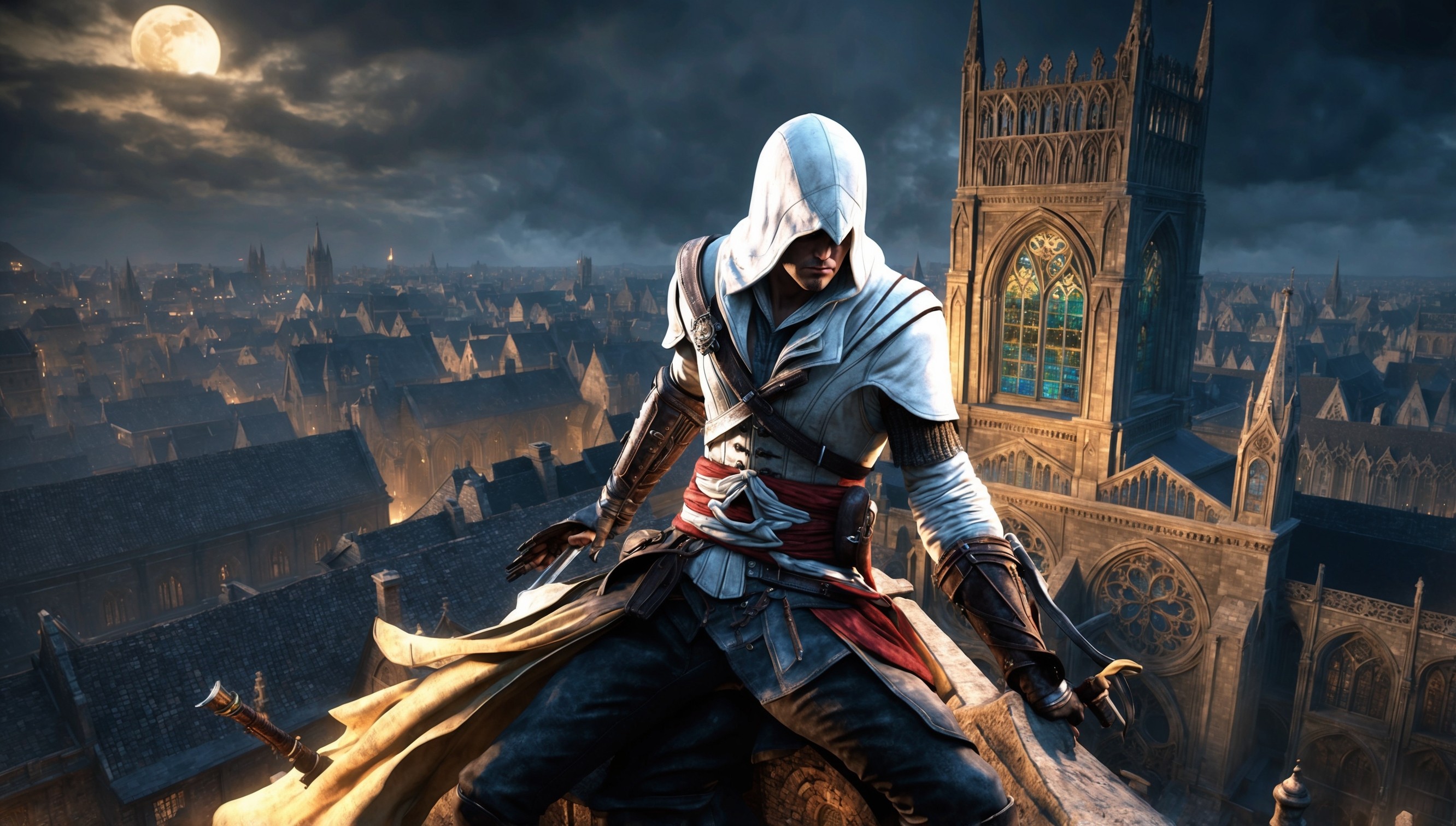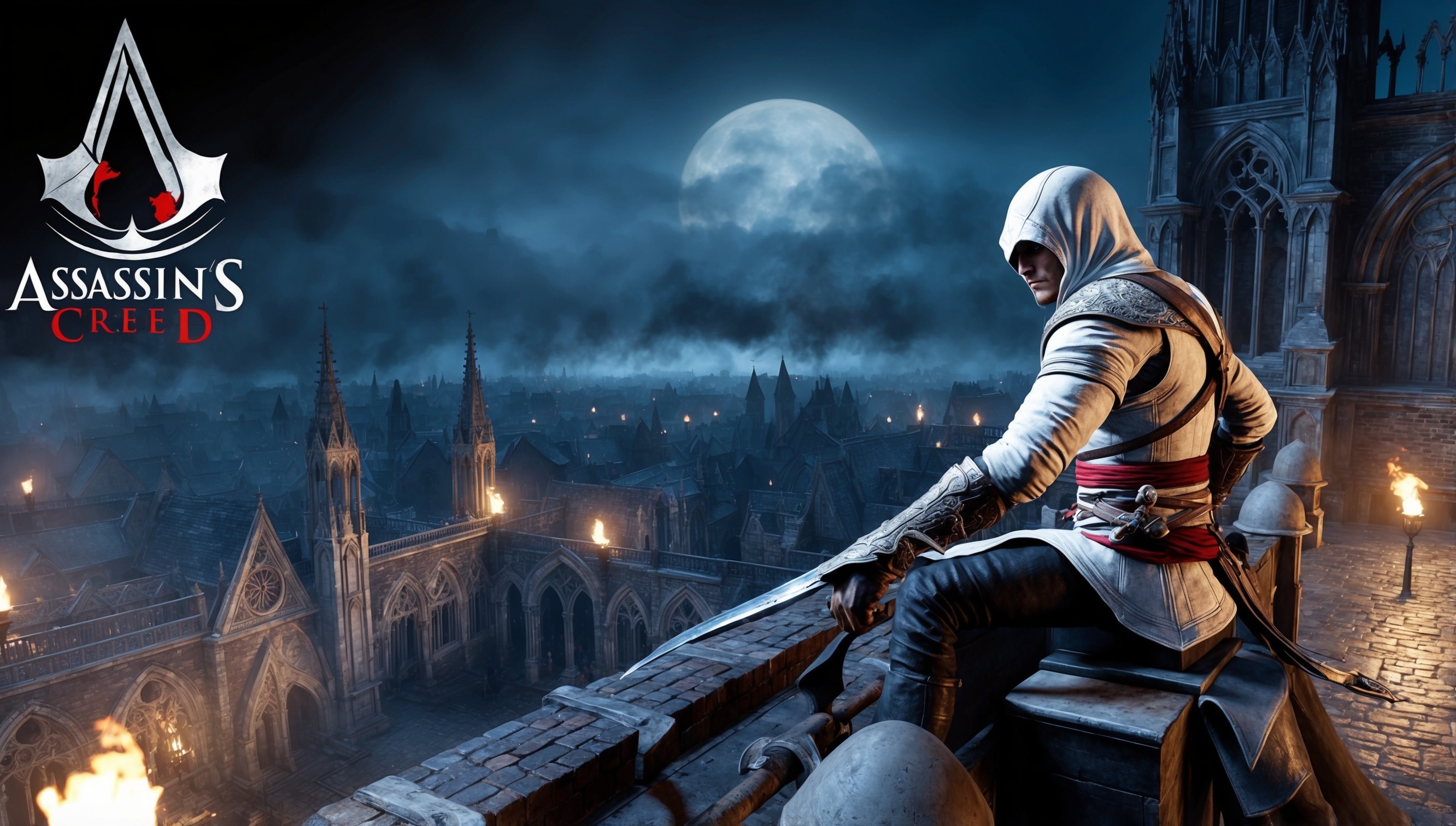Historical Accuracy vs. Gameplay in Assassin's Creed Series
Oct-20-2024

As a long-time fan of the Assassin's Creed series, I have always been captivated by the rich historical contexts woven throughout each installment. The balance between maintaining historical precision and providing captivating gameplay has been a hallmark of the series ever since it began. My journey through the various periods and locations has led me to ponder the implications of this balance. As I delve deeper, I find myself torn between appreciating the historical intricacies and reveling in the thrill of gameplay.
Diving into the Origins
From the moment I first stepped into the shoes of Altair in the original Assassin's Creed, I was immersed in a world that teetered on the edge of reality. The Third Crusade provided a backdrop that was rich in conflict and moral ambiguity. However, there were moments where the gameplay overshadowed the history. I still remember the exhilarating feeling of free-running across rooftops, but I often wondered how much of my experience reflected the actual events of that time.
The Renaissance as a Playground
Moving on to Assassin's Creed II, set in the awe-inspiring Renaissance, the series took a leap forward in terms of environmental design and storytelling. I lost myself in the intricacies of Florence and Venice, where I could encounter real historical figures like Leonardo da Vinci. The gameplay flourished with new mechanics, allowing me to tackle missions in a myriad of ways. Yet, part of me questioned how much of my escapades with Ezio truly aligned with the historical narrative. Was it accurate to have the Prince of Florence engaging in high-flying acrobatics while fighting shadows of a long-forgotten conspiracy?

Historical Characters and Their Deeds
The introduction of prominent historical figures made the experience even more exhilarating. Meeting influential personalities felt almost like time travel. However, those encounters often took a backseat to the overarching story. I frequently found myself reflecting on the creative liberties taken. For example, did Leonardo really assist a thief in fending off Assassins, or was he an innocent genius indulged into a plot far beyond his own comprehension?
The Revolutionary America
With Assassin's Creed III, I was transported to the tumultuous American Revolution. Experiencing the battles between the Assassins and Templars against the backdrop of independence was thrilling. Yet, I could not help but notice the gaps and embellishments within the historical framework. The portrayal of figures like George Washington felt almost mythical at times. I appreciated the monumental events but often found myself questioning the accuracy of certain actions and motivations driving characters.
Embracing the Viking Age
When I embarked on my journey through Assassin's Creed Valhalla, the Viking Age enveloped me with its gritty realism, well-crafted settlements, and breathtaking landscapes of Norway and England. The visceral nature of combat and the depth of exploration scratched an itch I didn’t know I had. Still, the question of historical authenticity loomed large. Sure, I could raid monasteries and forge alliances, but the freedom to choose my path made me wonder—how closely did these choices resemble the lives of actual Viking warriors?


Narrative Gaps and Historical Fabrication
As I delved deeper into the series, I became increasingly aware of the gaps in narrative, including instances where the story bent historical facts for the sake of gameplay. The intricate web of Assassin-Templar conflict often overshadowed the true complexities of historical events. It pushed me to consider what sacrifices were made in the name of entertainment, and whether the developers were aware of the historical implications.
The Enduring Legacy of Assassin's Creed
Ultimately, as I reflect on my experiences, I see that the Assassin's Creed series has created a legacy of interweaving history with captivating gameplay. However, the balance between the two remains a topic of discussion. While I continue to enjoy unraveling secrets in ancient settings, the question of how authentically they represent history will always linger at the back of my mind. In the end, it is this blend of exhilarating gameplay and nuanced historical contexts that keeps me coming back for more—forever exploring the fine line between the real and the imagined.







